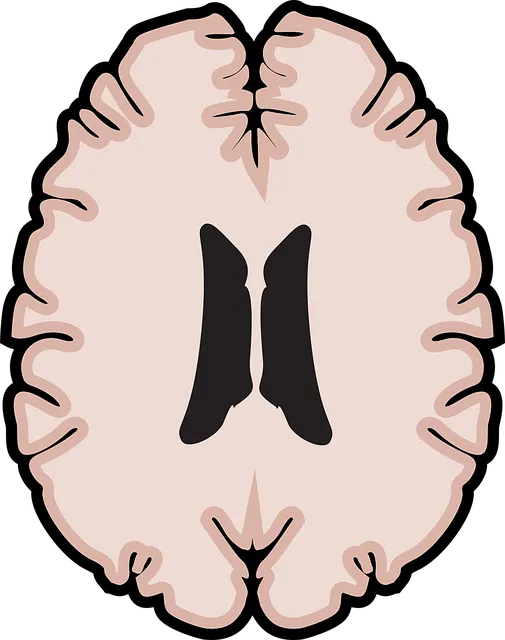Mental health professionals in Golden, supported by resources like the Kaiser Permanente psychiatry phone number, navigate a delicate balance. They utilize risk assessment tools to predict and mitigate hazards while safeguarding their own well-being. By integrating stress reduction methods, workshops, and emotional well-being promotion techniques, they enhance resilience. Adhering to legal, ethical, and professional guidelines, these professionals assess risks in dynamic situations, manage patient confidentiality, and contribute to public mental health awareness. Through detailed documentation, social skills training, and structured programs, they ensure competent care while fostering open discussions about mental health. A deep dive into Kaiser Permanente's strategies offers valuable insights for global mental health practices, emphasizing self-care as a cornerstone of professional well-being.
Mental health professionals must master risk assessment to deliver effective care. This comprehensive guide explores essential aspects, from understanding risk assessment in mental health practice to legal and ethical considerations for psychiatrists. We delve into identifying risks across diverse clinical scenarios and provide tools for robust risk management. Learn from real-world examples, including insights from Kaiser Permanente Psychiatry, to enhance your approach and ensure patient safety. For more information, contact the Kaiser Permanente psychiatry phone number Golden.
- Understanding Risk Assessment in Mental Health Practice
- Legal and Ethical Considerations for Psychiatrists
- Identifying Risks in Different Clinical Scenarios
- Tools and Techniques for Effective Risk Management
- Case Studies: Lessons from Kaiser Permanente Psychiatry
Understanding Risk Assessment in Mental Health Practice

Mental health professionals are tasked with a delicate balance: providing support while managing their own emotional well-being. Risk assessment is a cornerstone of this process, enabling practitioners to identify potential hazards and implement effective strategies for mitigation. This proactive approach ensures that both clients and healthcare providers can navigate challenging situations safely and effectively.
At organizations like Kaiser Permanente, the psychiatry phone number serves as a crucial resource, offering guidance and support for mental health professionals facing diverse risks. From managing stress through evidence-based Stress Reduction Methods to participating in specialized Stress Management Workshops Organization, these resources play a vital role in promoting emotional well-being. By adopting Emotional Well-being Promotion Techniques, professionals can enhance their resilience, thereby better serving their clients and maintaining their own mental health.
Legal and Ethical Considerations for Psychiatrists

Mental health professionals, such as psychiatrists employed by organizations like Kaiser Permanente, operate within a strict legal and ethical framework. The Kaiser Permanente psychiatry phone number Golden serves as a vital resource for patients seeking specialized care, emphasizing the importance of access to mental health services. Psychiatrists must adhere to not only federal and state regulations but also the ethical standards set forth by their professional organizations. These guidelines encompass a range of issues, from patient confidentiality and informed consent to the responsible prescription of medications.
The Mental Health Awareness and promotion of Self-Care Practices are integral aspects of a psychiatrist’s role. They must be vigilant in recognizing and mitigating potential risks associated with treatment, including side effects of medications and the risk of self-harm. Additionally, they play a crucial part in Public Awareness Campaigns Development, educating the public about mental health issues to reduce stigma and encourage early intervention. This multifaceted responsibility necessitates a delicate balance between clinical practice, ethical conduct, and public service.
Identifying Risks in Different Clinical Scenarios

Mental health professionals constantly navigate complex and dynamic scenarios, making it crucial to identify risks effectively. For instance, a Kaiser Permanente psychiatry phone number search might reveal a patient with a history of severe depression seeking urgent help. The Golden rule here is to assess not just the immediate danger but also the potential triggers for relapse or acute deterioration in mental health. This involves understanding the patient’s past experiences, current stressors, and any environmental factors that could exacerbate their condition.
In another scenario, a therapist might encounter a client dealing with trauma-related disorders. Risk assessment here should encompass not just the individual’s current symptoms but also their capacity to cope, support systems in place, and potential triggers from their traumatic past. Integrating Stress Reduction Methods can be a key component of risk management planning for mental health professionals, helping to mitigate risks effectively and foster healthier outcomes for patients. Additionally, Mental Illness Stigma Reduction Efforts play a vital role in creating an environment where individuals feel safe to openly discuss their challenges and seek the help they need.
Tools and Techniques for Effective Risk Management

Mental health professionals must equip themselves with robust tools and techniques to manage risks effectively. One valuable resource is the Mental Wellness Journaling Exercise Guidance provided by organizations like Kaiser Permanente. This guidance encourages practitioners to regularly document patient interactions, track symptoms, and reflect on potential risk factors. By maintaining a detailed journal, professionals can identify patterns, assess vulnerabilities, and make informed decisions to mitigate risks promptly.
Additionally, Social Skills Training and Communication Strategies play a pivotal role in risk management. These skills enable mental health experts to foster strong therapeutic alliances, enhance patient engagement, and improve communication effectiveness. Through structured training programs, professionals learn to navigate complex conversations, recognize non-verbal cues, and adapt their communication style to suit diverse patient needs. Such strategies not only strengthen the patient-therapist relationship but also facilitate early intervention and better risk assessment.
Case Studies: Lessons from Kaiser Permanente Psychiatry

At Kaiser Permanente Psychiatry, a deep dive into their risk assessment strategies reveals valuable insights for mental health professionals worldwide. By examining case studies from this leading healthcare provider, we can glean essential lessons on navigating complex patient scenarios and fostering resilience within the field. Through their approach, Golden-based Kaiser Permanente highlights the importance of integrating Positive Thinking and Self-Awareness Exercises into daily practice to mitigate risks associated with burnout among healthcare providers.
The psychiatry department’s experience underscores the urgent need for Burnout Prevention Strategies for Healthcare Providers. By prioritizing self-care and cultivating a culture that encourages open dialogue about mental health challenges, Kaiser Permanente Psychiatry has successfully minimized risk factors and enhanced the well-being of its professionals. This proactive stance not only benefits individual practitioners but also ensures the provision of high-quality patient care within their community.
Mental health professionals must master risk assessment to provide safe, effective care. By understanding legal and ethical obligations, recognizing risks across diverse clinical scenarios, and employing robust tools and techniques, practitioners can mitigate potential harm. The case studies from Kaiser Permanente Psychiatry in Golden serve as invaluable learning tools, offering practical insights into real-world applications of risk management strategies. Embracing these principles is essential for maintaining patient safety and upholding the highest standards of mental health care. To learn more about Kaiser Permanente psychiatry services, visit their official phone number or website.






